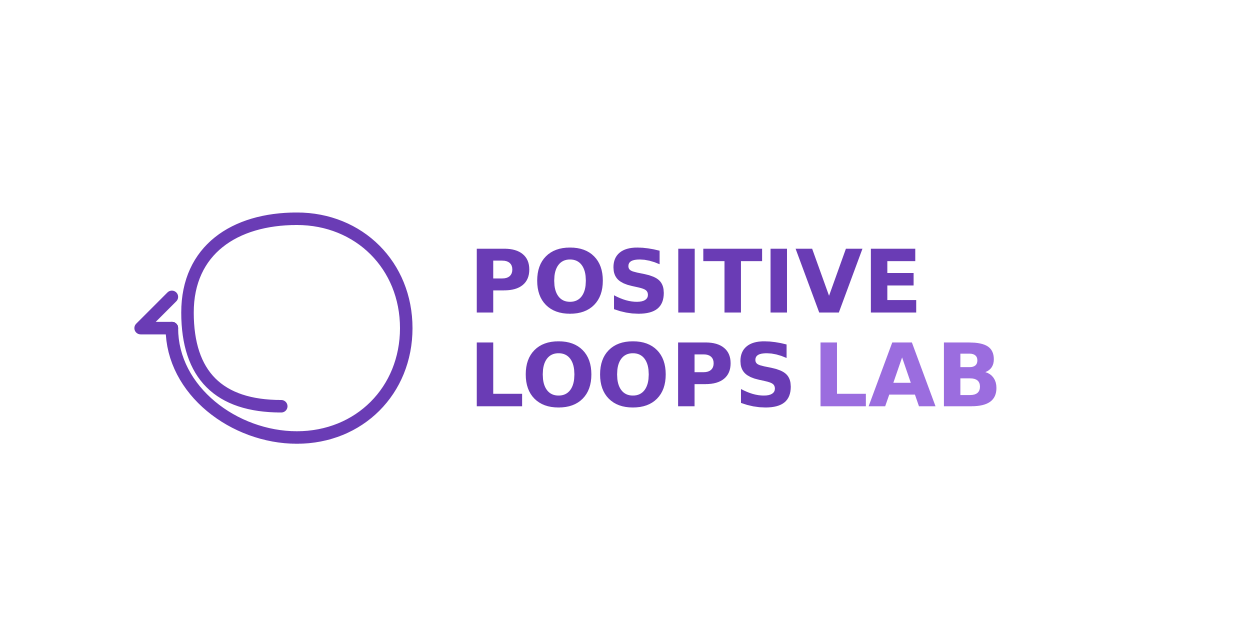Impact investment funds are set to come under further scrutiny from the global community.
The recent global political climate hasn't helped, but the main reasons are beyond politics. They are increasingly facing questions from within about impact reporting practices and standards.
Impact Investing is extremely important for financial inclusion, and we need the sector to grow in size and strength.
There has never been a better time to solve these challenges. The technological solutions and expertise that haven't been available historically, are now.
6 Common Mistakes in Impact Reporting
1. Failing to demonstrate impact on intended beneficiaries.
Reports often showcase the same numbers you'd expect from for profit companies: customer numbers, investment sizes, and revenues. These metrics tell us about reach, but nothing about the actual changes in people's lives. Without data on outcomes, we're essentially measuring activity rather than impact.
This approach misses the fundamental purpose of impact investing.
2. Claiming the impact of portfolio companies.
As an investment partner, it's okay to be proud of your investment companies. But don't claim all of their impact (including historically) as your own. Can you demonstrate what changes happened as a result of your investments? How was your investment a catalyst for change?
Yes, these can be growth and scaling figures, but if organisational transformation and change is required for improving impact, we'd like to hear about that happening too.
3. Impact reporting that lacks depth and credibility.
Impact data is rarely auditable. Investors often struggle to answer questions about how social impact data is collected, verified, or audited internally by portfolio companies. You'd be hard pressed to find the metadata to back up impact data. A lack of transparency undermines trust in reported 'outcomes'.
This is challenging, no doubt. It requires expertise.
4. Delayed Reporting
I get it. Collecting data from 50 portfolio companies for your Annual Impact Report is not an easy task.
Producing reports close to midway through the following calendar year demonstrates that data from portfolio companies is rarely being produced to impact investors in real time. Meaning systems for impact data driven decision making are broken.
This is a missed opportunity for impact driven decision making.
5. Relying on sample based data collection, and outsourcing Impact Measurement.
This is riddled with bias, and is preventing portfolio companies from embedding changes.
Impact Measurement SaaS companies have grown in the sector, promising "groundbreaking" solutions for impact measurement, with shiny dashboards and reporting for the sector. All at a good price, of course. These systems are rarely embedded into the operations of portfolio companies, creating a disconnect between daily business activities and impact assessment. When impact measurement exists as a separate exercise, it becomes a compliance burden rather than a driver of better decisions for impact.
It's not scalable or sustainable.
One fund engaged one of these companies (one of the largest Impact Measurement Companies, creating a lot of 'noise' at the moment in impact reports - I'll leave you to work that one out!) for their reporting. It collected data from:
- "Almost 2,000" of their 20 million client (0.01% of client represented)
- 7/138 of their partner institutions (5%)
- 2/32 countries represented (6.25%)
I'm impressed by the marketing and sales team of this impact measurement company, but it's providing less incentive for structural and operational change.
6. Impact auditing as a checkbox exercise rather than a tool for improvement.
Impact auditing has been increasingly a signalling exercise.
This approach doesn't create any incentive for improvement and change. And things absolutely need to improve. When everyone receives an "A+" grade despite the gaping holes in impact measurement and reporting in the sector, the entire process loses meaning, and fails to drive progress.
Maintaining the status quo does not drive impact, it serves the few.
Reasons Behind These Challenges
Change is not easy.
As humans we are wired to be averse to change, even if it benefits us. It's widely known as the status quo bias.
Without being overly cynical about why things are not changing fast enough in the sector, here are some things I've learned about the reasons for these challenges.
1. Many portfolio companies lack the technological infrastructure for effective impact measurement.
Technology is available for meaningful change to organisational systems, but many portfolio companies have still not embedded these.
They operate with legacy technology, manual processes, and disconnected systems that make it impossible to capture, analyse, and report on social outcomes in real-time. Without the right infrastructure, even the best intentions don't translate into meaningful measurement or decision making.
There is a huge opportunity in the sector for change, that will not only drive improved impact practices, but also sustainable and profitable financial institutions.
2. Impact funds typically lack the expertise to implement effective measurement systems.
There is a skill gap in funding institutions around technology, change management, and financial inclusion operations.
Most impact funds don't have the technical and practical knowledge to lead system change in portfolio companies, or help them to do so.
This is a big opportunity for impact investment funds to shape the sector.
3. It's easier to dress up inputs and outputs as impact than face difficult conversations
Fund managers face pressure to demonstrate impact but know that deeper scrutiny might reveal uncomfortable truths. Investments are still mostly evaluated on financial returns. As a result, portfolio companies focus on meeting growth targets rather than building systems for meaningful impact measurement. These misaligned incentives are a recipe for market failures.
I understand, it's not easy. We're all learning.
Practical Solutions
Impact funds need to go beyond saying 'profit and purpose.'
Reaching low-income sectors in developing countries has proven to be a profitable business opportunity. Riding on this wave with capital and global marketing teams is not enough to demonstrate the impact that differentiates you from just being a profitable investment fund. True impact investors demonstrate how they've improved the organisations they support. How have you used your impact expertise to help portfolio companies embed systems for understanding social impact and make daily decisions?
The market increasingly demands this level of evidence.
Investments in technology and operations are essential for credible impact reporting.
Financial institutions need technology and operational systems that provide auditable, real-time social and financial data. This means cloud-based core banking systems, digital data collection tools integrated into daily client interactions, APIs connecting different systems, and visualisation tools that make real time information accessible to decision makers.
Institutions that embed these processes are the most efficient and effective.
Create incentives for transparency and continuous improvement.
Impact investors should apply the same rigour to social data that they demand for financial information. This means requiring clear documentation of data collection methodologies, verification processes, and limitations. It means creating spaces where portfolio companies can honestly discuss challenges and failures without fear of punishment. Most importantly, it means rewarding progress and improvement rather than static achievement.
This culture of learning generates more meaningful impact than any reporting template.
Build internal capabilities and provide hands on support.
Funds must develop specialised expertise in digital transformation for impact measurement. This might mean creating dedicated technical assistance facilities, building internal centres of excellence, and establishing partnerships. The key is ensuring portfolio companies receive practical support in building their measurement capabilities, not just reporting requirements.
This hands on approach creates lasting value beyond financial returns.
Benefits for Impact Investors and the Sector
Better data capabilities leads to better business performance.
Financial institutions with robust impact measurement systems are better equipped to outperform their peers on both financial and social metrics. When social data collection is embedded into operations, organisations gain insights that drive product improvements, enhance customer service, and increase retention. Real time feedback enables faster adaptation to client needs and more responsive decision making. These operational improvements translate directly to stronger financial results alongside deeper social impact.
Better measurement isn't just about documenting impact, it creates it.
Credible impact reporting provides a competitive edge in fundraising.
As impact investing becomes more widely adopted, authentic impact measurement becomes a critical differentiator. Funds that can demonstrate rigorous approaches with verifiable data will attract capital seeking genuine impact. This differentiation will become increasingly important.
In a market where everyone claims impact, only those with robust evidence will stand out.
System level change creates benefits for the entire sector.
As more financial institutions adopt integrated measurement approaches, they contribute to stronger market infrastructure benefiting the entire sector. Better data enables more accurate pricing of impact risk and return, more effective policy interventions, and more efficient allocation of resources. These ecosystem benefits ultimately enhance the ability of impact investing to address social challenges at scale.
The transition from reporting to insight unlocks new value creation.
When financial institutions see the relationship between the work and and changes in clients' lives, they gain the ability to optimise for impact just as they optimise for financial returns. This shift from measuring for compliance to measuring for learning transforms impact from marketing to a management tool.
Innovation rather than a compliance burden.
Want to discuss anything in this article?
I'm keen to have more discussions with industry leaders to learn what others are doing, or how I might help.
If you'd like to discuss send me an email at:

